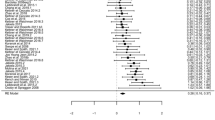Abstract
This article studies how individual behavior is affected by moral reflection in a dictator game with production. We make individuals reflect on fairness, in a structured way, before they play the dictator game. Our results suggest that moral reflection not only increases the weight people attach to fairness in distributive choices, but also has a strong effect on what people consider fair. Furthermore, we study the informational value of self-reported data. We find that self-reported data have substantial informational value, but do not add explanatory power to a random utility model estimated on purely behavioral data. Finally, we study whether there is a self-serving bias in the participants’ fairness perceptions, but do not find much evidence of this phenomenon in the data.
Similar content being viewed by others
References
Amiel Y, Cowell FA (1992) Measurement of income inequality: experimental test by questionnaire. J Public Econ 47: 3–26
Andreoni J, Miller J (2002) Giving according to GARP: an experimental test of the consistency of preferences for altruism. Econometrica 70: 737–753
Babcock L, Loewenstein G, Issacharoff S, Camerer C (1995) Biased judgement of fairness in bargaining. Am Econ Rev 85: 1337–1343
Bellemare C, Kröger S, van Soest A (2008) Measuring inequity aversion in a heterogeneous population using experimental decisions and subjective probabilities. Econometrica 76: 815–839
Berkelaar M, Eikland K, Notebaert P (2007) lp_solve: open source (mixed-integer) linear programming system. http://lpsolve.sourceforge.net/5.5/
Berndt ER, Hall BH, Hall RE, Hausman JA (1974) Estimation and inference in nonlinear structural models. Ann Econ Soc Meas 3: 653–665
Bolton GE, Ockenfels A (2000) ERC: a theory of equity, reciprocity, and competition. Am Econ Rev 90: 166–193
Camerer CF (2003) Behavioral game theory: experiments in strategic interaction. Princeton University Press, Princeton, NJ
Cappelen AW, Drange Hole A, Sørensen EØ, Tungodden B (2007) The pluralism of fairness ideals: an experimental approach. Am Econ Rev 97: 818–827
Cappelen AW, Sørensen EØ, Tungodden B (2010) Responsibility for what? Fairness and individual responsibility. Eur Econ Rev 54: 429–441
Charness G, Rabin M (2002) Understanding social preferences with simple tests. Q J Econ 117: 817–869
Cherry TL, Frykblom P, Shogren JF (2002) Hardnose the dictator. Am Econ Rev 92: 1218–1221
Dana J, Weber RA, Kuang JX (2007) Exploiting moral wriggle room: experiments demonstrating an illusory preference for fairness. Econ Theory 33: 67–80
Engelmann D, Strobel M (2004) Inequality aversion, efficiency, and maximin preferences in simple distribution experiments. Am Econ Rev 94: 857–869
Fehr E, Schmidt KM (1999) A theory of fairness, competition and cooperation. Q J Econ 114: 817–868
Ferrall C (2005) Solving finite mixture models: efficient computation in economics under serial and parallel execution. Comput Econ 25: 343–379
Fisman RJ, Kariv S, Markovits D (2007) Individual preferences for giving. Amn Econ Rev 97: 1858–1876
Frohlich N, Oppenheimer J (1990) Choosing justice in experimental democracies with production. Am Political Sci Rev 84: 461–477
Frohlich N, Oppenheimer JA, Eavey CL (1987) Choices of principles of distributive justice in experimental groups. Am J Political Sci 31: 606–636
Frohlich N, Oppenheimer J, Kurki A (2004) Modeling other-regarding preferences and an experimental test. Public Choice 119: 91–117
Gächter S, Riedl A (2006) Dividing justly in bargaining problems with claims. Soc Choice Welf 27: 571–594
Gaertner W (1994) Distributive justice: theoretical foundations and empirical findings. Eur Econ Rev 38: 711–720
Gaertner W, Schwettmann L (2007) Equity, responsibility and the cultural dimension. Economica 74: 627–649
Haisley EC, Weber RA (2010) Self-serving interpretations of ambiguity in other-regarding behavior. Games Econ Behav 68: 614–625
Houser D, Keane M, McCabe K (2004) Behavior in a dynamic decision problem: an analysis of experimental evidence using a Bayesian type classification algorithm. Econometrica 72: 781–822
Konow J (2000) Fair shares: accountability and cognitive dissonance in allocation decisions. Am Econ Rev 90: 1072–1091
McKelvey RD, Palfrey TR (1992) An experimental study of the centipede game. Econometrica 60: 803–836
McLachlan G, Peel D (2000) Finite mixture models. Wiley, New York
Messick DM, Sentis K (1983) Fairness, preference and fairness biases. In: Messick DM, Cook KS (eds) Equity theory: psychological and sociological perspectives. Praeger, New York, pp 61–94
Schokkaert E, Lagrou L (1983) An empirical approach to distributive justice. J Public Econ 21: 33–52
Takezawa M, Gummerum M, Keller M (2006) A stage for the rational tail of emotional dog: roles of moral reasoning in group decision making. J Econ Psychol 27: 117–139
Tjøtta S, Torsvik G, Kobbeltvedt T, Molander A (2008) The impact of anticipated discussion on cooperation in a social dilemma. Working paper 11-2008, Department of Economics, University of Bergen
Author information
Authors and Affiliations
Corresponding author
Rights and permissions
About this article
Cite this article
Cappelen, A.W., Hole, A.D., Sørensen, E.Ø. et al. The importance of moral reflection and self-reported data in a dictator game with production. Soc Choice Welf 36, 105–120 (2011). https://doi.org/10.1007/s00355-010-0468-3
Received:
Accepted:
Published:
Issue Date:
DOI: https://doi.org/10.1007/s00355-010-0468-3




